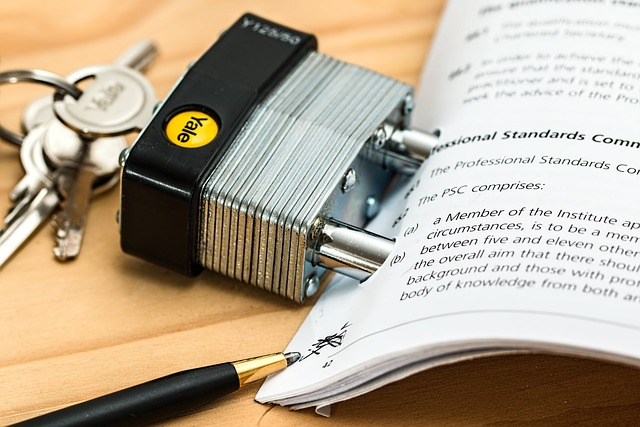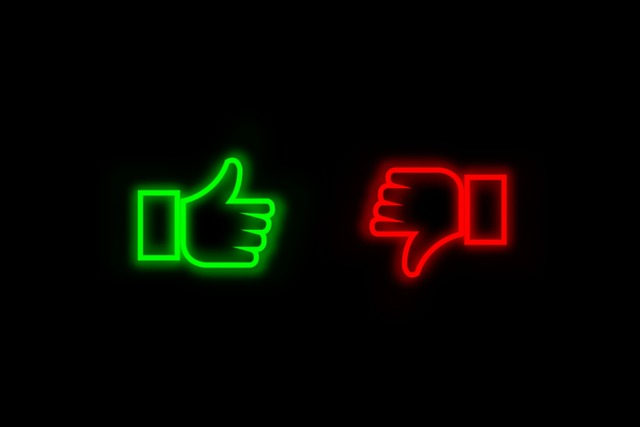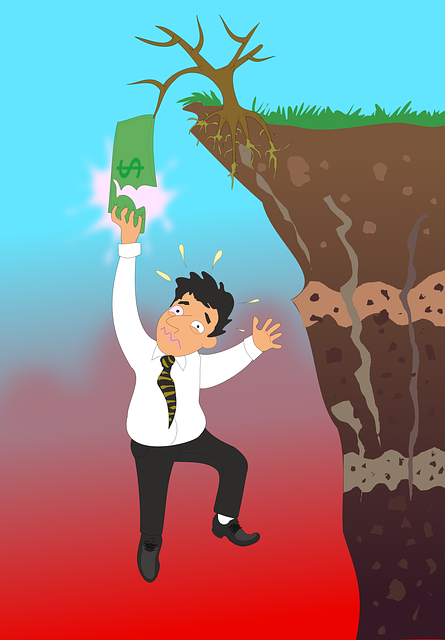Table of Contents
What is Debt Settlement?

Debt settlement is a form of debt relief. The process involves negotiating with a creditor (or creditors) where you owe a delinquent debt to settle the account for less than what you owe. Debt refers to money owed to lenders for credit cards or loans.
Creditors include lenders and credit card companies where a person owes debt. Most commonly, debtors work with a debt settlement company to negotiate on their behalf.
Not every creditor is willing to negotiate on debt settlement. The ones that do only consider it when an account has reached default status. In many ways, debt settlement is a last resort option to stave off filing for bankruptcy.
How does Debt Settlement work?

Debt settlement works by allowing you to pay off your credit card debt or loan debt at a lower amount. You must come to an agreement with the lender or credit card company.
You can try to reach a debt settlement agreement on your own or work with a debt settlement company. Neither method guarantees the outcome you want, but debt settlement companies have more experience negotiating with creditors.
Working with a Debt Settlement Company
The first step of the debt settlement process is identifying which debts you want to settle. You’ll submit those to the debt settlement service. It then creates a payment plan, which may include its fees.
In most cases, the company will advise you to stop paying the creditor for every account you submit to them to be settled. The money that you pay the debt settlement company goes into a reserve account.
After some time, possibly even a few years, your credit accounts will default due to non-payment. At that time, the accounts usually get charged off and sold to a collection agency or debt collector.
The debt settlement company will then begin negotiating on your behalf using the money you paid into the reserve account. It will attempt to get the creditor to accept a lower amount to settle the account. You will pay the settlement with a lump sum payment or set up a payment plan. Once the account is settled, the debt settlement company takes its fee.
Avoiding Debt Settlement Scams
There are many scam debt settlement companies. Research the company before enrolling in a debt settlement program. Look for reputable companies.
Per the Federal Trade Commission (FTC), watch out for debt settlement agencies that:
- Require you to pay their fee before negotiating with creditors.
- Claim it’s working with a “new government program.”
- Makes upfront guarantees.
- Tells you to stop communicating with creditors without explaining the impact that will have on your credit history.
- Promises to stop all lawsuits & collections calls.
- Claims it can settle your debt for very cheap.
DIY Debt Settlement
You can also try to settle the debt on your own. You’ll contact the creditors directly and explain your financial situation.
Most creditors won’t consider settlement if they believe you still have the ability to pay the loan. That means it’s unlikely they’ll negotiate if your payment is just past due or delinquent.
Creditors may be more willing to consider settlement once an account goes into default and gets sent to collections. You can start by asking to pay 25 cents on the dollar. Then 50 cents on the dollar and so on until you reach an agreeable percentage with the lender.
Does Debt Settlement Affect Credit Scores?
Debt settlement lowers credit scores, but not as much as defaulting and paying nothing. The exact damage to your credit score depends on where your credit score was, the size of the debt, and how creditors report it.
Generally, the higher your credit score, the more significant the drop when you settle a debt. For borrowers with a 700 or greater credit score, a settlement could drop your score by 140 to 160 points. For credit scores below 700, debt settlement credit score drops are 45 to 65 points on average.
The size of the debt also impacts how much your score drops. Settling larger debts is perceived as a greater credit risk, so the larger the debt, the more it lowers your score.
However, chances are the events leading up to the settlement have already lowered your credit score. Most people only consider settlement once they’re overdue on payments and know they can’t afford to pay off the debt. Those missed payments and high debt usually lower your score long before settlement.
It also depends on how creditors file the settlement in your credit report. Most are going to be aggressive and actively report delinquency and defaults. Once you settle, they’ll usually mark the account as “Settled in Full,” indicating it was a settlement, which will lower your credit.
However, some creditors are more lenient. They won’t necessarily file as many delinquent reports. It’s also possible that they list the settlement as “Paid in Full” or “Paid as Agreed,” which will have a much less impact on your score.
Credit Scores After Settlement
The good news is that any damage done to your credit score is only temporary. The process removes the debt from your credit report, which will have a positive impact over time.
Continuing good credit habits, such as making all monthly payments on time, keeping credit usage below 30%, and maintaining a good credit mix, will raise your scores, even it if takes a few years. However, debt settlement is still a serious mark on your credit, so only consider it when no alternatives are available.
What are the pros & cons of Debt Settlement?

Debt settlement has some benefits, but you must know the serious risks involved.
Pros:
- Helps avoid bankruptcy.
- A settled account is better than a defaulted account.
- Potential to save money by paying less than what’s owed.
- Stops collection calls and debt collectors.
Cons:
- No guarantee that creditors will negotiate.
- Could end up with more debt from late fees and penalties.
- Might pay fees even if you don’t settle all your debts.
- Debt settlement affects your credit score negatively.
- Might have to pay taxes on settled debt.
Frequently Asked Questions
Here are the most common questions about the impact of debt settlement on credit.
What types of Debt should I Settle?
Some types of debt won’t be available for settlement. For example, most secured loans won’t go to settlement because lenders will resolve the debt by collecting on the collateral.
Loans that include collateral are called secure because the collateral provides security for the lender. Some loans use the asset you’re financing as collateral, known as a self-collateralized loan.
For example, if you default on a car loan, the lender repossesses the car. Defaulting on a mortgage will result in a foreclosure, which is the legal term for the process of a mortgage lender repossessing the property. Repossession and foreclosure go on your credit report and lower your credit scores.
It’s also unlikely to reach a debt settlement for student loans. Discharging student loans in bankruptcy is impossible, so lenders have little incentive to settle.
That leaves unsecured debt, which includes most credit cards and installment loans without collateral. Considerations for settling debt include:
Account status: Creditors won’t negotiate a settlement on accounts in good standing (meaning no late payments). If you’re delinquent, most lenders will wait until you default before considering settlement.
Size of the Debt: It would be best to focus on settling your largest debts first to save you from the steepest late fees and accrued interest. Many debt settlement services focus on settling the smallest debts first, so make it known you’d prefer to settle larger debts.
Other Options: Before committing to settlement, consider if other options might be available. For example, a debt consolidation loan or balance transfer card could help you resolve delinquent debt without the severe consequences of settlement.
Paying Taxes: Debt settlement involves paying less than what’s owed. The difference between what you paid and what you owed is the forgiven portion of the loan, and that could be taxable. Ensure you’re prepared to pay taxes for forgiven amounts in debt settlement.
Preparing for the Long-Haul: A debt settlement plan could take several months to a few years before it’s all done. Your credit will take a hit during that time, and getting financing won’t be easy. Repairing your credit post-settlement also takes time. Ensure you’re prepared for how long it will take.
Settling debt can eventually lead to better credit scores and debt management, but seeing the light at the end of the tunnel can be challenging when going through it. It takes resolve to persevere and discipline to commit to good credit habits to repair the damage done to your credit.
How long does Debt Settlement Stay on my Credit Report?
Settled accounts stay on your credit report for up to seven years. However, the damage it does to your credit lessens over time.
How do I raise my Credit Score after Debt Settlement?
Improving damaged credit requires adopting good credit habits and controlling spending. Some financing products are also designed to help low-credit borrowers repair or build credit.
Here are the top strategies to repair credit after debt settlement.
Make On-Time Payments
Timely payments are the best way to build good credit. Payment history is the largest factor that comprises your credit score. Ensuring timely payments requires budgeting for all credit accounts. Don’t use credit unless you have a set budget to repay it. Utility and rent payments can also impact payment history, so ensure you pay bills on time.
Keep Credit Usage Low
Amounts owed make up the second largest factor impacting your credit. It’s recommended to keep credit utilization below 30%. For maximum results, keep credit utilization under 10%. Credit utilization is the amount of credit you use over your total available credit limit.
Consider a Secured Credit Card
Opening new lines of credit after a settlement can be difficult. But using and paying off credit is the best way to raise a low credit score. Secured credit cards help solve this catch-22.
Opening the card requires a security deposit in cash, making it more accessible for credit-challenged borrowers. You can then use the card and pay off the debt to build positive credit history.
Consider a Credit-Builder Loan
Credit-builder loans are typically for small amounts. Instead of disbursing the loan funds to you, the lender sets the money aside in a savings account or certificate of deposit (CD).
You make regular payments plus interest, which helps build a positive payment history. Once you pay off the loan, the lender releases the funds.
Monitor Credit Reports
Everyone gets a free annual credit report from the three major credit bureaus. You can access the free reports at www.AnnualCreditReport.com. Tracking your credit report helps you identify any incorrect information negatively affecting your credit.
Does Debt Settlement impact my Small Business Loan options?
A recent debt settlement on your credit report could limit your small business loan options. Commercial lenders look at your consumer credit report when underwriting business loans. As with consumer credit, the higher your credit score, the better your access to business loans.
While there are bad credit business loans, they typically have higher interest rates and fees than traditional business loans. In addition, there are fewer options for business loans with bad credit. You’ll also likely get lower borrowing amounts and shorter terms.
However, a business for bad credit could help if you need urgent funding and can’t wait until your credit score improves. Some small business owners will use a bad credit business loan as bridge financing.
Most business loan for bad credit lenders are online lenders that offer quick and easy online applications with fast funding. You can use the funds to cover business expenses in the short term while building your credit until you qualify for a lower-cost business loan.
Does Debt Settlement Hurt Your Credit – Final Thoughts

Debt settlement can be a lifeline when drowning in debt, but you shouldn’t enter the process lightly. It will lower your credit score and remain on the credit report for seven years.
If you decide that debt settlement is your only option, it’s best to be prepared with a strategy to repair your credit afterward. It could take several months to a few years of good credit behavior, but you can always raise your credit score after it takes a hit.
Contact us if you have more questions about debt settlement or to apply for a small business loan. Our loan experts can help you find the best business loan options for your credit score.





More Stories
Essential tips for new website owners on how to successfully manage a shared hosting account
How Much Time Does It Take To Create a Website?
Employee Appreciation Day: How to build a culture of year-round recognition